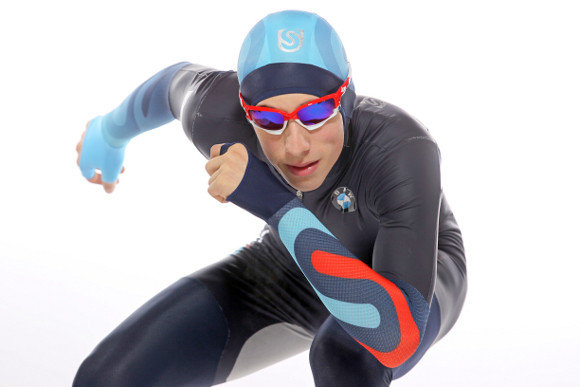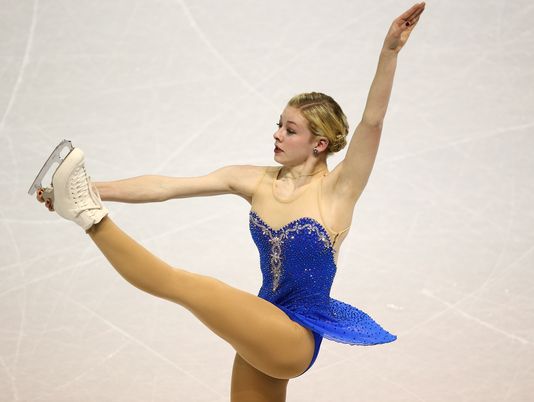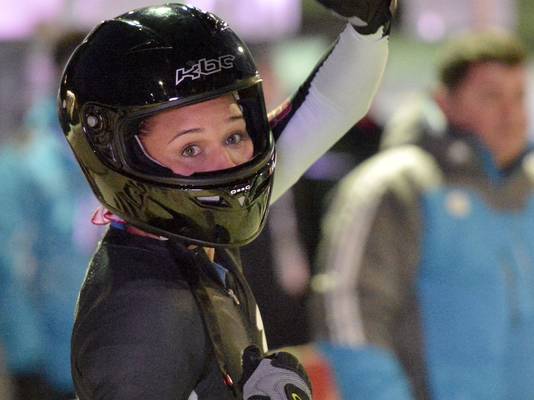When I was 16 I was thinking about college, driving, and my AP exams. The 16- and 17-year-olds I describe below seem similar-- but they are also thinking about medals, championships, and endorsement deals.
Tennis is used to having young phenoms, though there has been a bit of a decline in recent years. But an exciting crop of American girls is surging, embodied in Sloane Stephens-- the 19-year-old American who just beat Serena Willliams in the Australian Open. Joining her is Taylor Townsend, who at 16 is the first American to hold the No. 1 year-end world ranking for junior girls since 1982. She's already been the subject of controversy after the USTA accused her of being out of shape for the US Open (she says she's in shape and it's just baby fat-- and this brought up a lot of issues about criticizing the appearance of female athletes, especially young ones) and she went pro this month. It will be interesting to see how her career develops, particularly alongside that of 17-year-0ld Madison Keys, who already has gone pro. It appears Keys and Townsend are Florida classmates, though at the moment Keys is most-often compared to Stephens. With Twitter, agents, and the press in the mix for all three already we can surely expect a show in the next few years among these teen tennis phenoms.
Winter sports has its fair share of female teen stars as well. I wrote about Mikaela Shiffrin almost a year ago and predicted we'd be hearing her name a lot more in the lead-up to the 2014 Olympic Games. Well I was right: Shiffrin was just featured in ESPN The Magazine's Next issue. (In many ways her story is similar to golf pint-sized phenom Lexi Thompson, also profiled along with her in the Next issue.) A few days later a long, thoughtful profile of her also appeared in The New York Times. But my favorite quote from her so far is in the ESPN piece when she explained why she wasn't there to get her World Cup Rookie of the Year Award: "I didn't know it was an award, so I was completely unaware. The party where it was awarded was at a bar and I wasn't allowed in. Also, I was exhausted."
Someone who could probably relate to Shiffrin's exhaustion is 16-year-old Emery Lehman. Lehman (somewhat unusually he's the only adolescent boy featured in this post about athletes) is a speed skater and at the end of last month he won his first national title in the 5000 meters.

I predict we'll be hearing his name more as the Sochi games approach.
The biggest teen athlete phenom from the last Olympics-- Missy Franklin-- is still in the news. This time it's not for beating the best in the world, it's just for beating those who live nearby her. Franklin, who decided to forego millions in endorsements to keep her eligibility to swim in both college (which she'll be doing soon at Berkeley) and in high school. But many of the high schoolers, and their parents, who have to compete against her in Colorado don't like that the phenom races against them, according to The Wall Street Journal.
What can I say about these terrible poor sports? Well, honestly, Madeleine Davies over at Jezebel said it best:
"It's really frustrating when Missy kind of shines above everything," said Bonnie Brandon, who before graduating last spring was Colorado's greatest-ever female high-school swimmer next to Franklin. "She's No. 1 in the world, and No. 1 in the state, and then I'm No. 2 in the state.…It's just hard being in close proximity," said Brandon, now a University of Arizona swimming star.
Why do you keep eating those sour grapes, girl?
I'm guessing a lot of teen athlete phenoms deal with sour grapes, but people should know better than to criticize a thoughtful 17-year-old for trying to help her friends and teammates in the national press.




